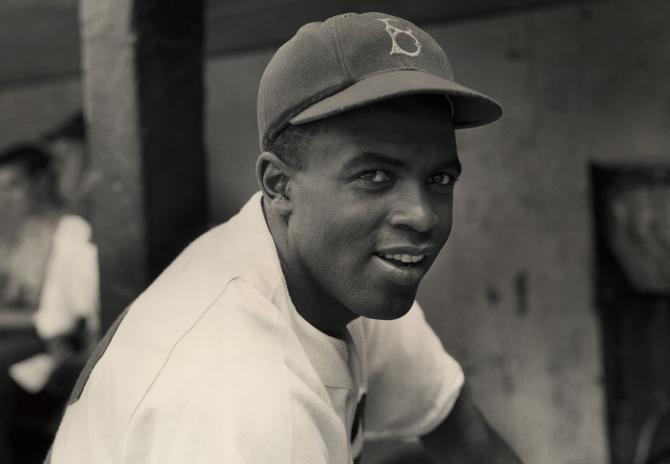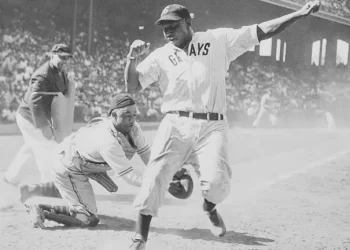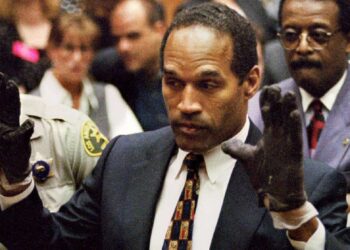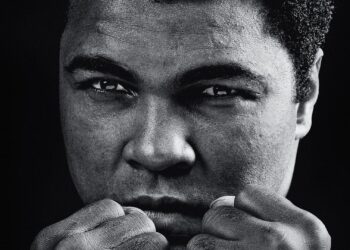Covering Truth
Whitewashing is a metaphorical term describing the practice of intentionally covering up the truth.
Writers also use it as a way to water down the accomplishments and legacies of significant historical figures that don’t accurately acknowledge the reality of who they were.
We see this with Dr. Martin Luther King Jr., Rosa Parks, Muhammad Ali, jazz music, Nelson Mandela, and the man we celebrate every April 15th, Jackie Robinson.
Who is Robinson?
We all know who Jackie Robinson is.
We know that on April 15th, 1947, he broke the color barrier in Major League Baseball as the second baseman for the Brooklyn Dodgers.

(Courtesy: Snopes.com)
We know that his #42 is retired throughout baseball.
We know that he is a significant figure who helped to change history.
Those are fundamental facts, but the problem is we have grossly done a great disservice to Jackie by not examining the full impact he had.
Conventional wisdom begins with the moment Jackie finds himself in Branch Rickey’s office in 1946. The story goes that Mr. Rickey hurled racial slurs at Jackie to test his emotional management in the face of attacks from white fans, players, and managers.
From there, Mr. Rickey told Jackie that he needed to turn the other cheek in the face of attack.
In other words, Jackie had to be perfect.
He couldn’t be angry at an umpire, hurl his bat in frustration, or play too flashy.
Actions that white athletes could get away with without difficulty as just being a natural component of sport.
Jackie had to live up to the racialized respectability politics.
The notion of individualism, pulling yourself up by your bootstraps, law, and order, being grateful. Supposedly doing those things will help lead to a better life outcome.
Incorrect Narrative
The 1950 film The Jackie Robinson Story portrayed much of that thought train. In the movie, Jackie plays himself, and the legendary actress and activist Ruby Dee plays his beloved wife, Rachel.
This concept views him as an example to uphold a narrowly defined prototype of what constitutes Americanism.
But few might know that the real-life Jackie Robinson was very sensitive to racism and was not shy about speaking up about matters of race.
After his playing career ended in 1957, Jackie became active in the Civil Rights Movement.

(Courtesy: Biography.com)
He marched and worked with Dr. King and the Southern Christian Leadership Conference and the NAACP.
He teamed up with famous jazz musicians to raise funds for these and other civil rights groups and causes.
He spoke about changing the conversation from individual achievement to destroying structural barriers to success for African Americans.
The Dodger advocated passionately for the presence of a black manager in baseball. He initially boycotted an appearance of the 1972 World Series for that reason.
The ballplayer also famously wrote in his autobiography about how he couldn’t stand for the national anthem. This fact was concealed from history until Colin Kaepernick’s protest.

(Courtesy: Amazon.com)

(Courtesy: The Source)
There is so much that big media doesn’t tell about Jackie Robinson in mainstream society. It would be a tremendous disrespect to who he was and how he lived his life if history doesn’t tell the whole story.
Whitewashing historical black figures who, in truth, were revolutionaries only serves to make mainstream America comfortable in their ignorance about race.
Jackie Robinson had what Stokley Carmichael called “an undying love for black people,” and that is how we should remember him.


 NFL
NFL





